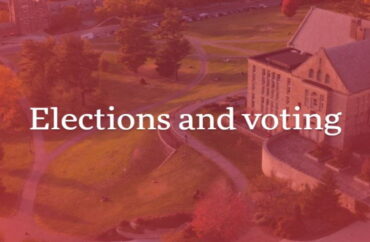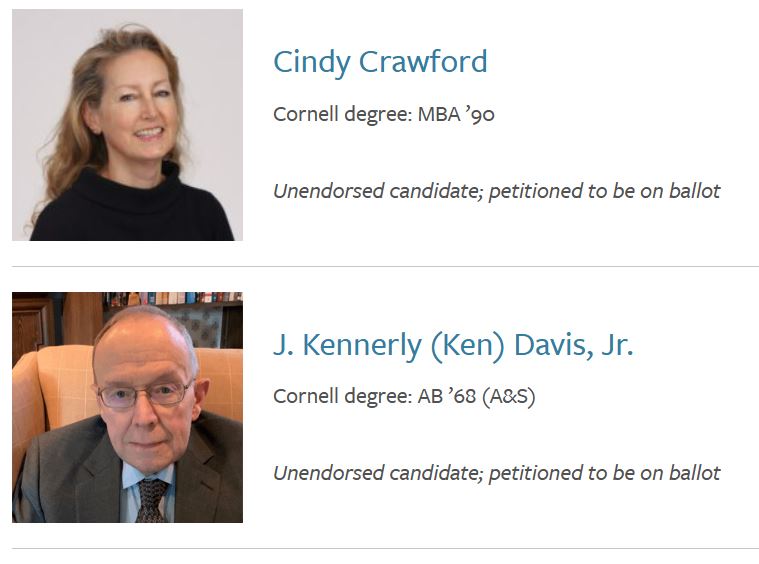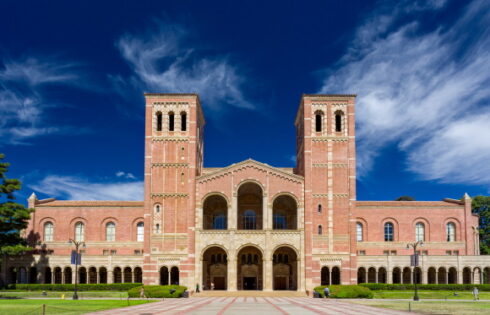
Cornell University refuses to allow candidates for its Board of Trustees to actively campaign, leading some to argue it’s an absurd and self-serving rule used to control the outcome of the vote and keep the board filled with yes-men.
The issue is coming to a head with an upcoming vote in February and two pro-free speech alumni who seek a position on the Board of Trustees, Cindy Crawford and J. Kennerly Davis, who are essentially blocked from reaching out to their fellow alumni to explain their platform.
“Cornell prohibits campaign activity of any kind by or on behalf of any candidate,” the university’s election guidelines state, which means neither the candidates nor those who support them can make any public or private statements regarding the election.
“Campaigning includes, but is not restricted to, soliciting endorsements of one’s candidacy, written or oral contact with alumni about one’s candidacy, statements to the press, advertising, posts on social media and other networking technologies, press releases, etc,” the rules read.
Making matters worse, Crawford and Davis have been labeled on the ballot as “unendorsed candidates” who “petitioned to be on ballot” — akin to some sort of scarlet letter. Meanwhile, the four other candidates are touted as “endorsed” by the Committee on Alumni Trustee Nominations.
The situation has prompted some concerned alumni to argue the practices are designed to profoundly disadvantage and impede candidates who are not approved by Cornell administration, ensuring the make-up of the 64-member Board of Trustees essentially remains a rubberstamp.
Consider that this month last year, the board voted — unanimously — to support the tenure of then-President Martha Pollack in the face of growing concerns over her leadership and calls for her resignation for allowing diversity, equity and inclusion dogma to infiltrate the curricula and rampant antisemitism to fester on campus.
The current situation drew a lengthy piece in National Review on Sunday by contributing editor Jack Fowler, who argued Crawford and Davis simply seek to add some fresh perspective to a board that as of now appears to be a dog and pony show.
Yet the rules surrounding their ability, or lack thereof, to make a case to Cornell voters is absurd, he wrote:
So . . . an alumnus who asks, for example, “What, Candidate X, is your view on how Cornell is harmed by its DEI policy?” or, “Candidate Y, did the board make a mistake by unanimously supporting President Pollack last year?” is violating the rules. …
There doesn’t seem much space for nuance or wiggle room: The innocent asking of a question puts the candidate’s candidacy at risk, especially if it prompts a mere courteous response (no “written or oral contact”!) to the inquiry by stating, If I answer, I will be disqualified.
Sounds Orwellian, in the Cornell dialect: Any candidate mentioned or involved in a private communication – written, verbal, maybe even smoke signals – will face immediate disqualification from the election. …
With such absurdity and rigged rules and an institutional bent to brook no potential critics, why seek the trustee position?
Crawford, senior policy counsel for Americans for Prosperity Foundation, stated in her officially approved Cornell interview that the “challenges Cornell has faced regarding freedom of  expression and institutional neutrality are squarely within my professional expertise, which focuses on upholding free speech, and First Amendment rights.”
expression and institutional neutrality are squarely within my professional expertise, which focuses on upholding free speech, and First Amendment rights.”
“The nuances between maximizing protection for expression while guarding against recasting destructive behavior as speech can be difficult to navigate. I have the experience to discern the difference, and the courage to make that distinction.”
Davis is also an attorney, as well as former assistant attorney general of Virginia and a member of the Federalist Society.
He wrote in his officially approved Cornell interview that the “university must validate and bolster responsible behavior through consistent and decisive enforcement of university rules, and laws, that define the boundary between protected rights such as free speech and unprotected activities such as violent demonstrations and threats that stifle the legitimate exercise of protected rights.”
MORE: After increasing demands for her resignation, embattled president of Cornell announces retirement
IMAGE: Cornell University website screenshots
Like The College Fix on Facebook / Follow us on Twitter







Please join the conversation about our stories on Facebook, Twitter, Instagram, Reddit, MeWe, Rumble, Gab, Minds and Gettr.